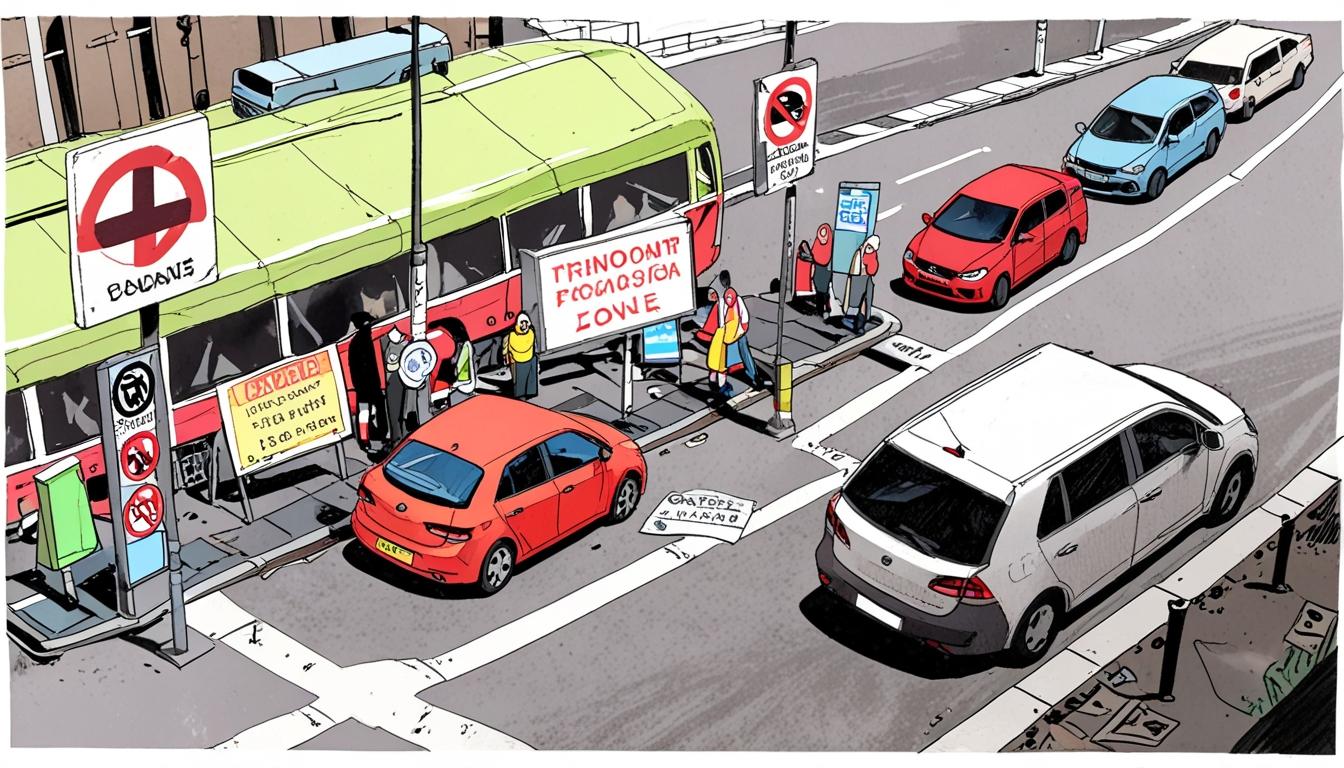Scotland is witnessing heightened political debate surrounding the government's transport policies, particularly those aimed at reducing car use amid environmental concerns. The ruling Scottish National Party (SNP) is maintaining its commitment to policies seen as punitive to motorists, despite opposition from Scottish Conservative members who have called for an end to what they describe as a "war on drivers."
The controversy recently culminated in a parliamentary vote after the Scottish Tories submitted a motion urging a halt to what they characterised as "anti-car" measures. These policies include the implementation of low emission zones (LEZs), reductions in speed limits, and other constraints on car use. The Conservatives argue these measures unfairly burden commuters, tradespeople, parents, and carers—describing motorists as essential to Scotland's daily life and economy. They criticised the government for focusing on measures perceived to punish drivers without sufficiently addressing issues such as pothole repairs, major road upgrades, and practical transport alternatives.
Scottish Conservative transport spokesman Sue Webber commented on the government's stance, saying: "Motorists are not the enemy, they are parents doing school runs, workers getting to jobs, tradespeople running businesses, and carers reaching the most vulnerable—ordinary people going about their everyday lives." She further criticised the SNP for their "relentless" policies that make daily travel more difficult and costly "without a feasible alternative being available," and highlighted concerns about the proposed national speed limit reduction to 50 miles per hour.
The SNP, however, remains firm on its policies. Connectivity Minister Jim Fairlie dismissed the description of the government’s efforts as a "war on motorists," calling such language "reckless given the wider global considerations" amid the climate crisis. Speaking to the Daily Mail, Fairlie emphasised the necessity of reducing transport-related carbon emissions, particularly from cars, and defended measures such as low emission zones as "effective and necessary" for public health protection. He cited the historical decline in public transport usage, linking it to the deregulation of bus services in the 1980s under Conservative governments, and called for a shift towards active travel, public transport, and electric vehicles.
In the parliamentary vote, the SNP's amendment rejecting the Tory motion passed by 64 votes to 52, signalling continued government focus on environmental and emission reduction targets despite criticism. Earlier this year, the SNP had to abandon a previously announced "world-leading" target to reduce climate emissions by 75% by 2030. Reports from the Auditor General and Accounts Commission also judged it unlikely that the Scottish Government would meet its aim to reduce car kilometres travelled by 20% by the same year, citing a "lack of leadership." Questions were also raised about the impact of free bus passes for young people and the reintroduction of peak ScotRail fares.
The SNP's draft just transition plan for transport, published in February, includes measures aimed at further discouraging car use, such as reducing parking space dimensions to deter SUVs and considering vehicle size in road charge and taxation schemes.
Scottish Labour transport spokesman Claire Baker acknowledged some merit in the Conservative criticisms, noting issues like the problematic implementation of low emission zones in Glasgow and the physical state of Scotland’s roads. However, she expressed reservations about framing the debate as a "war on motorists," stressing the parliament’s shared goal of reducing emissions and improving air quality.
This ongoing debate reflects a broader tension between environmental objectives and practical transport needs in Scotland, with the SNP government prioritising climate action and emission reductions while opposition parties and some segments of the public raise concerns about the impact on drivers and connectivity.
Source: Noah Wire Services
